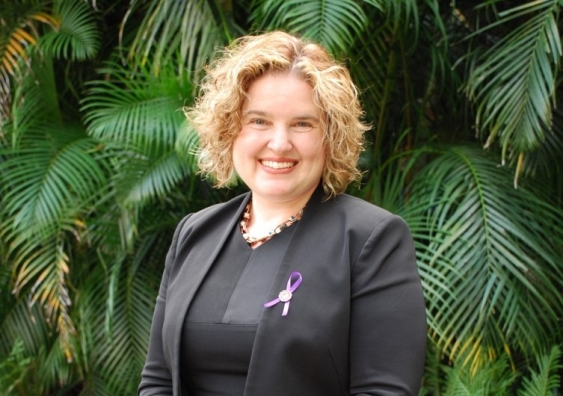Associate Professor Caroline Ford is an ovarian cancer researcher. She can talk about the importance of shining a light on underfunded and under-researched cancers, including gynaecological cancers – and the need to increase awareness, reduce stigma and invest in research.
Scientia Professor Michael Barton AM is the Principal of cancer research for UNSW Medicine. He can talk about the wide range of cancer research at UNSW, the global demand for cancer services, and how the MRI linac will revolutionise cancer treatment.
Associate Professor Phoebe Phillips is a pancreatic cancer researcher. She can talk about why pancreatic cancer is so devastating and its outcomes so poor, and speak about the opportunities created by UNSW’s collaborative effort with the Sydney Partnership for Health, Education, Research and Enterprise (SPHERE).
Conjoint Professor Geoff Delaney is a cancer clinician and researcher. He can talk about how cancer survivorship research is increasingly important – with more and more people surviving cancer – and how care for all cancer patients needs to be evidence-based. He can also talk about the importance of integrating cancer care with the GP.
Professor Afaf Girgis AM is a behavioural scientist. She can talk about how cancer affects everyone, not just the patients – for example, how partners and carers experience high levels of distress as well, and therefore need support. She can also speak about the importance of asking patients directly about their experience, and how we need more accessible psychosocial care for all patients.
Dr Orazio Vittorio is a UNSW Scientia Fellow and researcher at the Children’s Cancer Institute. He can talk broadly about childhood cancer – brain cancer in particular. He can also speak about PET imaging and how it’s revolutionised the imaging of oncology patients, and opportunities to evaluate the potential beneficial effects of repurposing drugs to treat aggressive childhood cancers.
Conjoint Professor Michelle Haber AM is a leading childhood cancer researcher. She can talk about how childhood cancer is different from adult cancer, and why this matters. She can also explain how her research aims to discover new treatments and how childhood cancer has led the way for adult cancer treatment. Finally, she can talk about the importance of leveraging new genetic technologies to identify individual personalised treatments, and her future vision for childhood cancer research at the Children’s Cancer Institute.
Conjoint Senior Lecturer Mei Ling Yap is a radiation oncologist. She can talk about the importance of radiation therapy, the inequities in access to it, and how to close these gaps for cancer patients locally and globally.
Professor John Pimanda is a blood cancer specialist. He can talk about acute leukaemia, a poor-survival cancer that affects young and old people. He can also speak about The Lowy Cancer Research Centre – a major hub for blood cancer research – and how blood cancer research needs funding to uncover new targets and to develop new drugs.
Professor Claire Vajdic is a health services researcher. She can talk about how large-scale linked data can help drive best practice health care and reduce the burden of cancer. She can also explain the unwarranted variation in cancer care and how to work together to tackle that, and speak to the importance of focusing our efforts on those with the greatest unmet needs.


